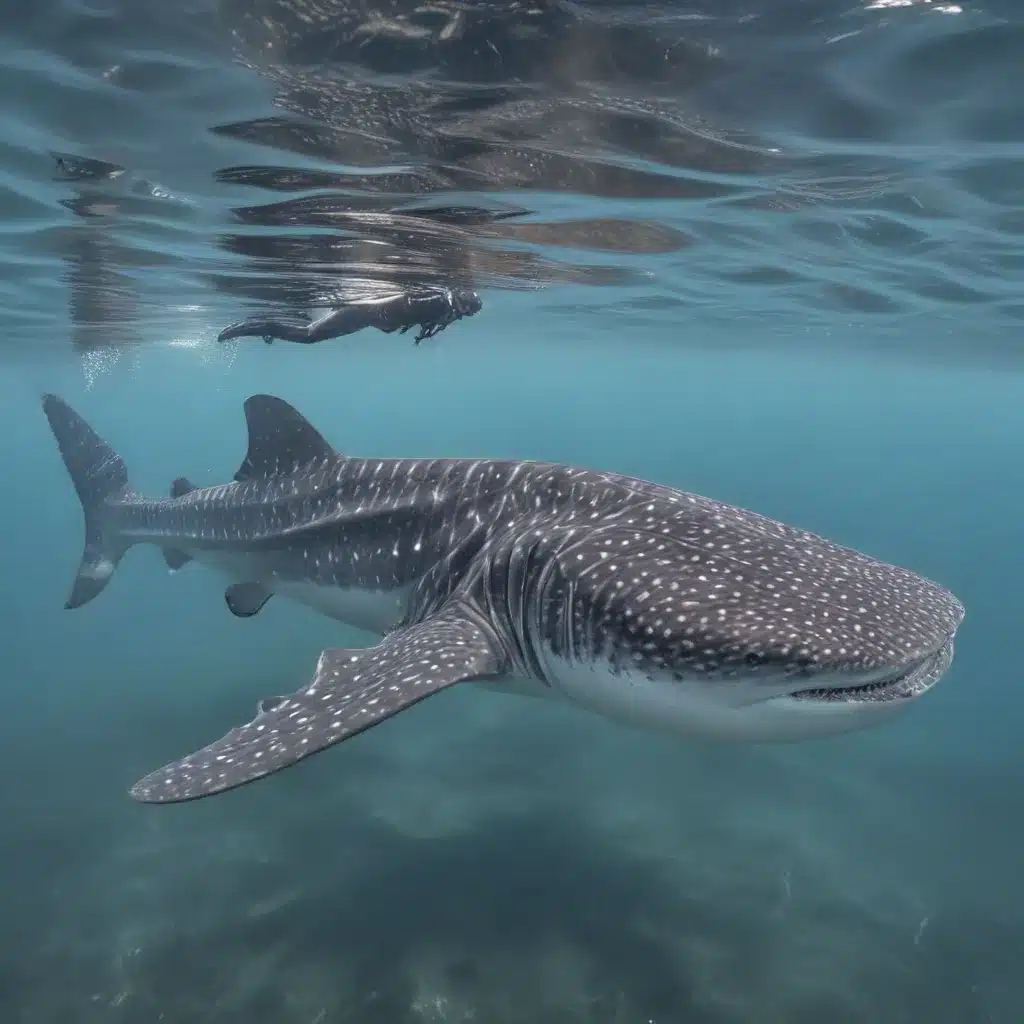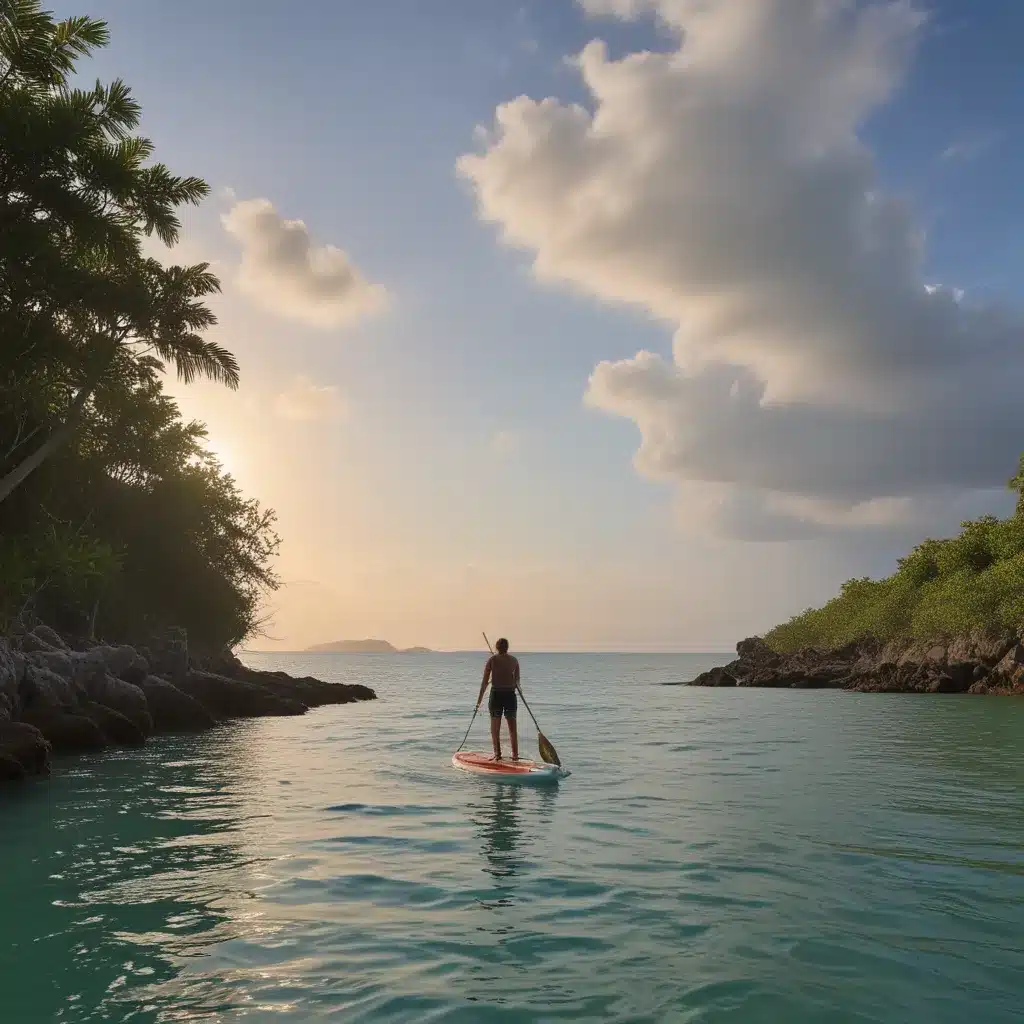
Encountering the Gentle Giants of Donsol
I can still vividly recall the first time I laid eyes on a whale shark in Donsol Bay. It was an overcast morning, the kind where the horizon blends seamlessly with the still waters, making it nearly impossible to discern where the sky ends and the sea begins. As our small outrigger boat gently glided across the glassy surface, a sudden movement in the distance caught my eye. At first, I thought it might be a trick of the light, but as we drew closer, an enormous silhouette emerged, undulating gracefully through the waves.
I held my breath, transfixed, as the majestic creature approached our boat. Its massive, spotted body seemed to float effortlessly, its wide, gaping mouth opening to reveal hundreds of tiny teeth, perfectly adapted for filter-feeding on plankton. I couldn’t believe my luck – this was my first encounter with the gentle giants of Donsol Bay, the world-famous whale sharks.
Donsol: The Whale Shark Capital of the Philippines
Donsol, a small fishing town on the southeastern coast of the Philippines, is widely known as the “Whale Shark Capital of the Philippines.” Every year, from November to June, these incredible animals migrate to the nutrient-rich waters of Donsol Bay, drawing visitors from around the world who hope to catch a glimpse of these magnificent creatures in their natural habitat.
But what is it about Donsol that makes it such a prime destination for whale shark encounters? The answer lies in the unique geography and ecology of the region. Donsol Bay is part of the larger Bicol region, which is known for its diverse marine life and stunning natural beauty. The bay’s warm, shallow waters, combined with the presence of plankton-rich currents, create the perfect conditions for whale sharks to thrive.
“Donsol’s location on the southeastern coast of the Philippines, combined with the bay’s warm, nutrient-rich waters, makes it an ideal breeding and feeding ground for whale sharks.”
Furthermore, the local community in Donsol has made a concerted effort to protect and conserve these gentle giants. In the late 1990s, the town established a whale shark ecotourism program, which has since become a model for sustainable wildlife tourism around the world. By carefully regulating the number of visitors and implementing strict guidelines for interacting with the whale sharks, Donsol has managed to maintain a thriving population of these remarkable creatures.
The Whale Shark Experience in Donsol
Diving with whale sharks in Donsol is a truly unforgettable experience. The process typically begins early in the morning, when visitors gather at the town’s designated whale shark interaction site, known as the “Donsol Whale Shark Interaction Area.” Here, you’ll be briefed on the proper etiquette and safety protocols for encountering these gentle giants.
Once the site is deemed safe and the whale sharks are spotted, small groups of snorkelers are guided out to the water, where they have the opportunity to swim alongside the whale sharks as they feed. It’s an awe-inspiring sight, watching these massive creatures glide effortlessly through the water, their gaping mouths scooping up mouthfuls of plankton.
“The whale shark experience in Donsol is a carefully regulated and sustainable ecotourism activity, ensuring the safety of both the visitors and the animals.”
During my time in Donsol, I was lucky enough to encounter several different whale sharks, each with its own unique personality and behavior. Some were content to simply cruise along, seemingly unperturbed by our presence, while others seemed more curious, even approaching our group to get a closer look. It was an incredible privilege to witness these animals up close, and I was struck by their incredible size and power, as well as their graceful, almost serene movements.
The Gentle Giants: Whale Shark Biology and Conservation
Whale sharks, scientifically known as Rhincodon typus, are the largest known species of fish on the planet. These magnificent creatures can grow to lengths of up to 18 meters (60 feet) and weigh as much as 34 metric tons (37.5 short tons). Despite their immense size, however, whale sharks are completely harmless to humans, feeding exclusively on plankton, small fish, and invertebrates.
“Whale sharks are the largest known species of fish, capable of reaching lengths of up to 18 meters (60 feet) and weighing as much as 34 metric tons (37.5 short tons).”
One of the most fascinating aspects of whale sharks is their migratory behavior. These animals are known to travel vast distances, often covering thousands of kilometers in search of the most abundant feeding grounds. In the case of Donsol, the whale sharks typically arrive in the bay during the dry season, when the waters are warm and nutrient-rich, providing an abundant supply of plankton for the sharks to feast on.
Unfortunately, despite their protected status, whale sharks remain vulnerable to a variety of threats, including bycatch, ship strikes, and habitat degradation. In recent years, conservation efforts have been ramped up to protect these gentle giants, with organizations like the World Wide Fund for Nature (WWF) working closely with local communities to implement sustainable ecotourism practices and educate the public about the importance of whale shark conservation.
“Whale sharks are vulnerable to a variety of threats, including bycatch, ship strikes, and habitat degradation, making conservation efforts critical to the survival of these magnificent creatures.”
As I reflect on my time in Donsol, I’m reminded of the incredible privilege and responsibility we have as visitors to these natural wonders. By engaging in sustainable ecotourism and supporting conservation efforts, we can ensure that future generations will have the opportunity to witness the awe-inspiring sight of a whale shark gliding gracefully through the waters of Donsol Bay.
Planning Your Whale Shark Adventure in Donsol
If you’re eager to embark on your own whale shark adventure in Donsol, there are a few key things to keep in mind. First and foremost, the best time to visit is during the dry season, which typically runs from November to June. This is when the whale sharks are most abundant in the bay, with peak sightings occurring between March and May.
“The best time to visit Donsol for whale shark encounters is during the dry season, from November to June, with peak sightings occurring between March and May.”
When it comes to booking your trip, it’s important to work with a reputable tour operator that is committed to sustainable tourism practices. These operators will not only ensure your safety and comfort during the whale shark encounter, but they’ll also work to minimize the impact on the animals and their habitat.
In addition to the whale shark experience, Donsol offers a wealth of other activities and attractions for visitors to enjoy. From exploring the mangrove forests and birdwatching in the nearby wetlands, to hiking through the lush, volcanic landscapes, there’s something for every adventurer.
“In addition to whale shark encounters, Donsol offers a variety of other outdoor activities and natural attractions, including mangrove forests, wetlands, and volcanic landscapes.”
So, what are you waiting for? Pack your bags, grab your snorkel gear, and get ready to experience the magic of Donsol’s gentle whale sharks for yourself. I promise, it’s an adventure you’ll never forget.


